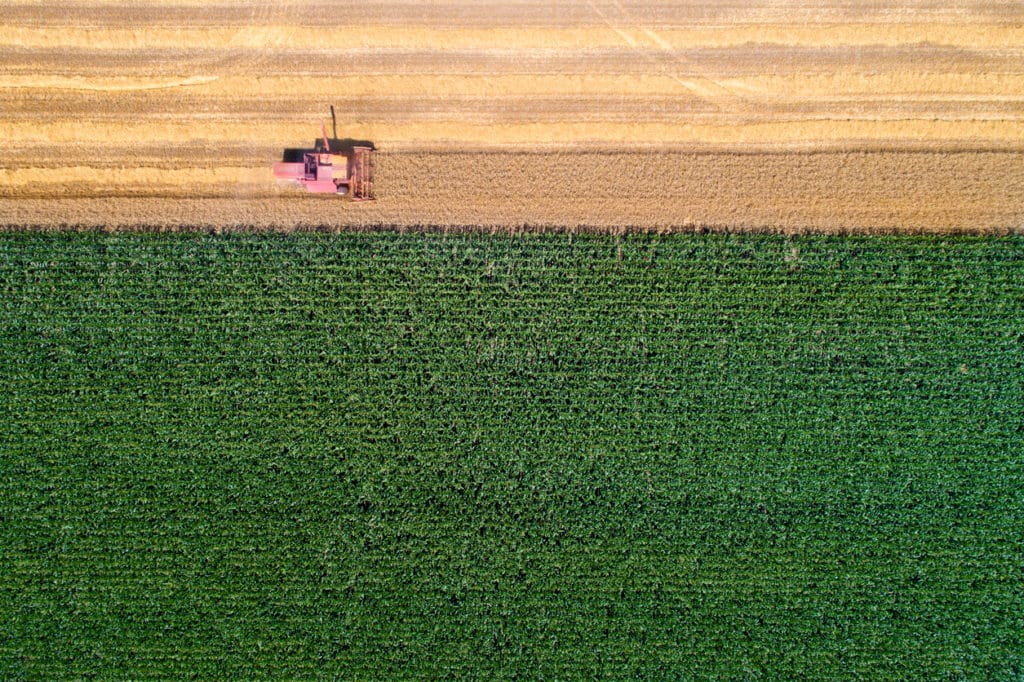One of the most important pieces of any soil health management plan is Weed Control. In Organic farming, weed control is far and away the most important piece of your crops success.
There are multiple different methods of weed control in organic farming, one of the most effective being mechanical weed control. Using tools like a tine weeder and a cultivator can drastically reduce the amount of weeds found in your field year over year.
Farmers have a variety of tools at their disposal when it comes to weed control in organic fields.
Organic farming weed control best practices include:

How do organic farmers control weeds? Learning how to control weeds in organic farming is the single most important thing that organic farmers can learn. There are a variety of methods organic farmers use to control weeds on their acres, so we’ll do our best to cover them all.
In particular, we’re going to be talking about the methods we’ve used to help effectively create a weed management plan for our own organic acres.
Left untouched, weeds will decimate crop yields (no matter how much fertility you use), make harvesting your crops next to impossible, and leave a farmer asking themselves why they decided to get into organics in the first place.
How do you control weeds in organic farming?
Learning to remove weeds for organic farmers is critical.
We’ve been farming organic since the early 2000’s. There was a point early on in our organic farming operation where we had to reduce organic acres and restart the process due to excessive weeds.
Ultimately, we made the decision, which proved to be right, to put more time into fewer acres. Our yields increased, we learned from the process, and fully committed to proper weed control.
Since that time, with our investment in both the correct equipment and a more robust knowledge of organic farming weed control, we’ve increased our acres and the yields have followed.
There are a number of ways you can control weeds in organic farming. Many of them involve mechanical methods.
What does starting clean mean? Well, not being afraid to pick up the pieces and re start your transition. As we mentioned above,
Let’s be clear about one thing when it comes to organic cultivation methods. No two cultivators are created equal, especially in organics.
Cultivation is one of the single most effective methods of organic weed management, but it’s one of the things we see the most folks skip out on. And it’s not that these farmers aren’t out cultivating, it’s that they’re not willing to invest in their cultivation system.
Organic farmers do not have the benefit of spraying their crops. So, they must get closer to the row than ever before with the hopes of killing any weeds. Yet, we continue to see old school cultivators that are less than 60% effective on weed kill per pass.
We recommend (and use on every one of our own organic acres) this cultivation system.
Check out Scott, one of the owners here at Crop Fertility Services, explaining the differences between new and old cultivators.
We’ve linked up a video of our weed zapper system below. Weed zappers are best used as a last ditch effort to control weeds. While they can be 100% effective in crops like soybeans, using a weed zapper isn’t possible until later on in the growing cycle, at which point your weeds have likely gotten out of hand.
If you’re in the Minnesota region, we do offer custom weed zapping. Contact Brian Halonen in our office for current rates.
For a quote on the setup we use, give us a call or send a text at (612)309-7522.
Implements used in mechanical weed control include Tine Weeders, Cultivators, Weed Zappers, Flame Weeders, Rotary Hoes, and more.
The use of cover crops plays a critical role in any weed management plan, especially in organic farming.
Get A No Hassle Quote
Get a quick, no-hassle quote on anything delivered to your farm. We pride ourselves on an unmatched level of service from start to finish and deliver anywhere in the United States. Try us, I dare you.
The Minimum Pellet order is 25 Tons (one semi-load) – Fill this out, we’ll be in touch!